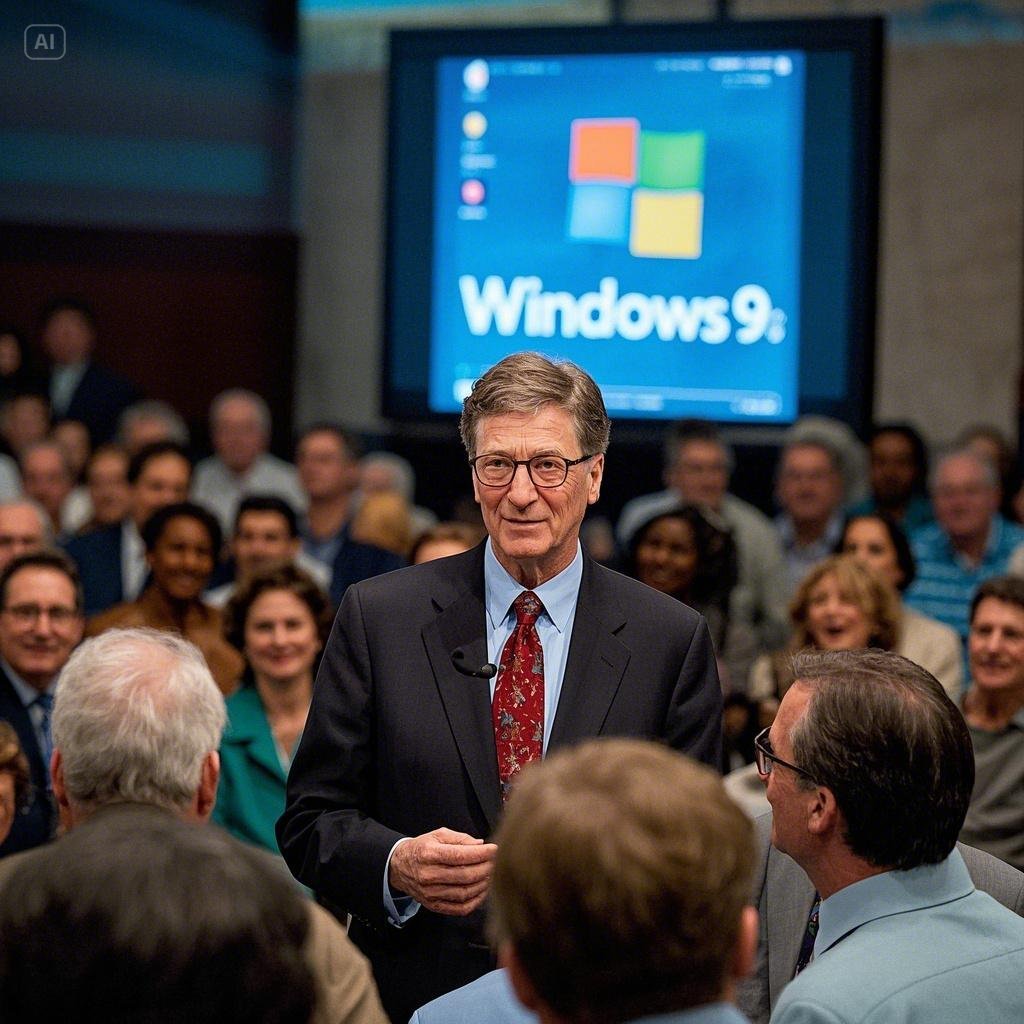How Bill Gates Became Successful?
/Among business and technology, one of the most well-known names globally is Bill Gates. His story is about determination, vision, and the ability to look ahead of the curve—not merely about riches. Not successful over night, Microsoft's co-founder developed his ideas over years of dedication, experimentation, and unwavering trust in the power of software. From an early interest in computers to rising among the most successful technical companies in history, Gates' path is simply amazing.
The Early Years Of A Brilliant Mind That Was Destined For Greatness
October 28, 1955, saw Bill Gates born in Seattle, Washington. Unlike many billionaires who began with absolutely nothing, Gates came from a somewhat wealthy background that supported his curiosity and education. Early on, his parents saw his intelligence and registered him for Lakeside School, a private school where he first came upon computers. Gates grew obsessed with programming right here.
Gates spent hours studying to code inside the computer lab of the school while most children were outside playing. He had already created his first software program—a basic game of tic-tac-toe letting people play against the computer—by the time he was thirteen. This was only the start of a lifetime love that would finally cause him to transform computer usage worldwide.
Also Check Out Our: How Did Bill Gates Impact The World?
Dropping Out Of College To Chase A Dream That Would Change The World
Though he was only temporarily visiting, Gates registered at Harvard University in 1973. More than in listening to lectures, he was fascinated by computers; in 1975 he took a life-changing decision—he left Harvard to follow his ambition of launching a software company. Though fairly bold, this was hardly risky behavior. Knowing they had to act quickly, Gates and his friend Paul Allen saw an opening in the developing personal computer market.
Starting Microsoft in a small garage, the two had few tools but a clear objective. Going forward, they reasoned, software rather than hardware would define computers. Their will shaped their design of operating systems and software solutions meant to dominate the world market.
Microsoft changed drastically when IBM, the leading computer manufacturer at the time, got in touch regarding an operating system in 1980. Microsoft lacked one ready, but Gates grabbed the opportunity, bought an already-existing operating system, modified it, and sold IBM MS-DOS. With this action, Microsoft began to take the front stage in the computer industry.
While personal computers expanded all around us, Microsoft kept growing. Originally debuted by the company in 1985 as a graphical user interface meant to streamline computer running, windows Windows changed the computing scene and reinforced Microsoft's superpower technological image. As the company kept under control the market with every new Windows edition, Bill Gates is among the richest people on Earth.
Also Check Out Our: What Kind Of CEO Is Jeff Bezos?
The Leadership And Business Strategies That Made Microsoft A Global Giant
Bill Gates possessed not just great technical ability but also keen commercial judgment. In addition, he was a demanding and hardworking leader who gained recognition for his unrelenting work practices. He challenged his staff members to succeed, work more, and approach tasks differently.
Making sure Microsoft took the front stage in the software industry was one of his finest decisions. To make Microsoft even more powerful, he drove relentlessly for strategic acquisitions, licensing arrangements, and side-stepping of the competitors. Mostly he succeeded as he wanted one Microsoft product on every PC.
Bill Gates' Philanthropy And His Shift From Business To Humanitarian Efforts
Following decades of running Microsoft, Gates resigned from his daily duties there in 2008 to concentrate on philanthropy. Melinda, his wife, and he founded the Bill & Melinda Gates Foundation, which today ranks among the biggest philanthropic organizations worldwide.
His basis is on poverty reduction, education, and world health. Gates has given billions of dollars toward sponsoring scientific research, bettering education, and disease eradication. His commitment to improving the planet shows that his achievement was more than just financial; it was about permanently influencing mankind.
What We Can Learn From Bill Gates' Success And How His Journey Can Inspire Future Innovators
The journey taken by Bill Gates teaches us some worthwhile success strategies. You initially of course really must be passionate. From early youth, he was fascinated by computers and put out endless effort. Second, expansion calls for measured risk. Gates left Harvard paid off even if it involved some risk since he had ideas and a vision. The third one has to be somewhat flexible. The tech sector is changing fast; Microsoft thrived as it did in step with the developments.
These ideas are equally relevant in spheres unrelated to technology. Whether one is launching a technology company or cleaning services, success results from having a clear goal, being ready to take measured risks, and never stopping to learn.
The Legacy Of Bill Gates And How His Influence Continues To Shape The Future Of Technology And Philanthropy
Bill Gates leaves a legacy going beyond Microsoft. He has had quite an impact on technology, business, and philanthropy. He changed the way people use technology, set new standards for corporate leadership, and is currently working to solve some of the most critical problems the earth faces.
The computer business still feels his influence even if he is not controlling Microsoft. His achievements inspire new entrepreneurs and inventors much as a success model should. Bill Gates has demonstrated via philanthropy or technology that success is more about changing things than it is about merely making money.
His path is proof of the strength of vision, diligence, and endurance. From young child programming in a school lab to one of the most influential persons in modern history, Bill Gates' tale still motivates millions of people all over.
Also Check Out Our: How Did Jeff Bezos Become An Entrepreneur?







